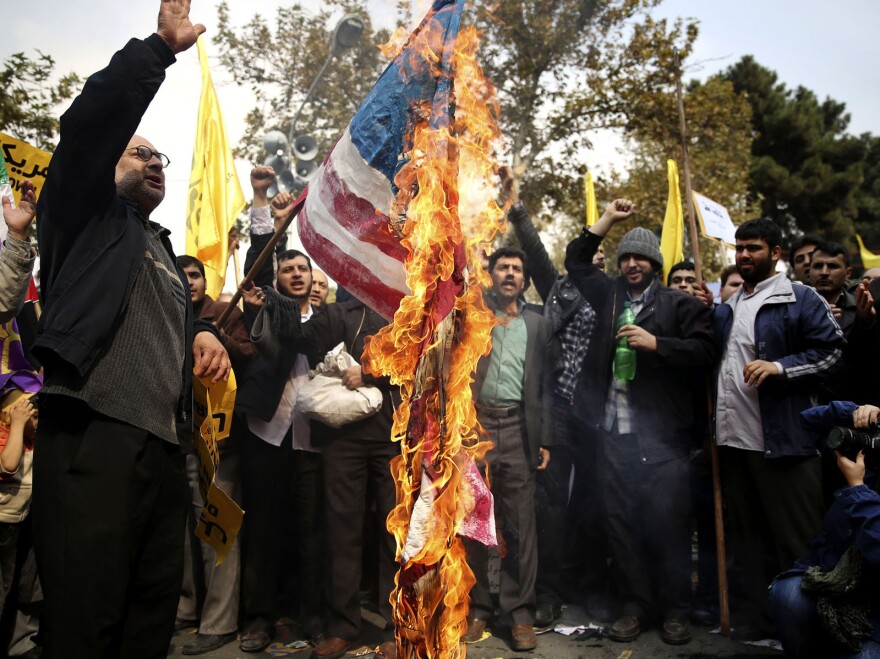As Iran prepares to mark the 35th anniversary of the Islamic Revolution, it's not hard to find evidence of its much analyzed devotion to martyrdom, especially around this holiday.
It's also not hard to find chants of "Death to America." Just drop by the massive Mosalla Imam Khomeini mosque for Friday prayers.
The imam, or prayer leader, spoke of ancient beliefs and up-to-the-minute politics, condemning recent comments by U.S. Secretary of State John Kerry and U.S. nuclear negotiator Wendy Sherman. The crowd of working-class conservatives and military hard-liners responded with full-throated wishes for America's demise.

But as the same crowd streamed out of the mosque a short while later, they turned back into individual Iranians, some of whom revealed much more nuanced opinions and a surprising willingness to give their president more time to conduct his diplomatic outreach.
Amir Sazagar, a 60-year-old self-described inventor, says the recent nuclear agreement between Iran and six world powers pleases Iranians in many ideological camps, and there's a lingering feeling of optimism.
"People are hopeful about the future, both for the economy and the foreign diplomacy," Sazagar says. "We're connecting more these days with other countries, and that makes us feel better."
Another worshipper, Adiya Mouradiya, makes it clear that he preferred the previous president, hard-liner Mahmoud Ahmadinejad. Mouradiya says nothing has really changed with the economy so far and this subzero winter is especially hard.
But even so, he takes a surprisingly pragmatic view of President Hassan Rouhani's outreach — even that to the ritually hated America.
"Look, America is a superpower," he says. "So if we fix the relationship with America, things should get better."

Across town, the Romance Cafe caters to a very different clientele — a mostly young crowd, plugged into various devices and chatting earnestly over espressos and herbal teas.
Nasser, 40, and part owner of the cafe, says it's true that conservatives are giving Rouhani time to sink or swim, especially since he still has the backing of Supreme Leader Ayatollah Ali Khamenei.
But it's equally important that the pro-reform protesters known as the Green Movement, who flooded the streets of Tehran in 2009, are also showing patience, says Nasser — who asked NPR to use his first name only.
"People decided to give him time, especially the Green Movement, you know?" Nasser says.
"The Green Movement is not dead," he added. "People are happy with the negotiations."
Critics of Rouhani's nuclear diplomacy are of course waiting in the wings. But for now, he seems to have succeeded in raising hopes for a better future across the political spectrum.
Difficult talks on a comprehensive nuclear accord will be held later this month in Geneva, and the question is whether Rouhani can deliver in the face of opposition at home, in the region and in Washington.
Copyright 2021 NPR. To see more, visit https://www.npr.org.




